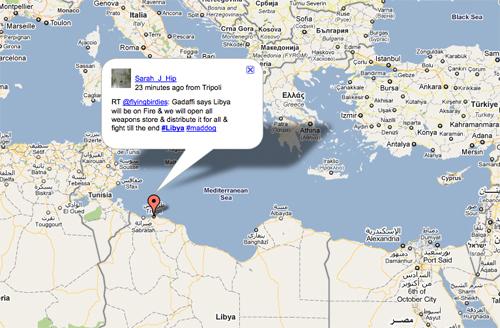Possible scenarios for Libya
By Katy Clark
Western governments – including the United States – have been slow in announcing concrete steps to support the rebellion in Libya. But Friday, the White House said the US is imposing sanctions against the Gaddafi regime – and cutting diplomatic ties with Tripoli.
Events are moving so quickly in Libya, that it’s anyone’s guess what will happen next. But there are several possible scenarios.
One scenario has Gaddafi holding on to power, unleashing a brutal reprisal upon those Libyans who dared to rise up against him. That calls to mind the revenge Iraqi dictator Saddam Hussein exacted on the Shia in Southern Iraq and the Kurds in the North following their 1991 uprising against his rule. Saddam lasted another 12 years in power.
But Dartmouth College professor, Dirk Vandewalle, said Saddam’s situation in 1991 wasn’t as dire as Gaddafi’s present one.
“He could kind of in bunker mentality remain in Tripoli,” Vandewalle said. “But then of course major problem, where would he get the resources to support himself and the people that still support him? Because ultimately money comes from the oil fields, and the oil fields are obviously not located in Tripoli.”
A Libya split?
A second scenario also envisions Gaddafi holding on to power, but with his country split in two … with Eastern Libya largely out of his control. Vandewalle said that pretty much describes Libya at the moment. And he said it’s not a good place for a leader to be in.
“Because at that point he’d need to re-conquer the Eastern part of the country so to speak,” he said. “And frankly I don’t think he has enough military hardware and support to make that possible.”
Scenario number three envisions a future Libya without Gaddafi, but with no clear successor. Reva Bhalla is with the global intelligence company Strategic Forecasting, or Stratfor. She said such a situation would result in a security vacuum unseen before in the Middle East.
“In Libya, if you have fall of Gaddafi first real example of regime collapse in the region because Gaddafi himself personified this regime,” Bhalla said. “He deliberately kept institutions around him weak, including the army. So without that cohesion from top you can very easily see things breaking down particularly into this east/west split.”
And Paul Sullivan of Georgetown University said a divided Libya wouldn’t last very long considering the country’s economy depends on exporting natural resources.
“Most of natural gas on West coast, but LNG refinery on East coast,” Sullivan said. “Most of oil on East coast, pipeline going to Italy off West coast. The infrastructure is built for country that should be one.”
Security vacuum
It’s the third scenario of a “security vacuum” that most worries observers like Sullivan. But there are signs of hope. For instance in Benghazi, the first major Libyan city to declare its independence from Gaddafi’s rule, life continues relatively smoothly. Shops are open, traffic is flowing, and a new local government is emerging.
Benghazi could be a model for the rest of Libya. But that depends on when Gaddafi leaves, and how he exits.
Many like Libyan-American, Hafed Al-Ghwell say ousting Gaddafi may turn out to be the easy part. The work that follows once he’s gone will be more challenging. Even so, Al-Ghwell said his countrymen back home are up to the job.
“I was just listening to someone in Tripoli saying I swear I don’t even have a stone in my hand,” Al-Ghwell said. “I’m walking into this fire, prepared to die, but I don’t even have stick or stone to defend myself with.”
Al-Ghwell said Libyans may not know what’s in store for them next, but feel anything is better than Gaddafi.
